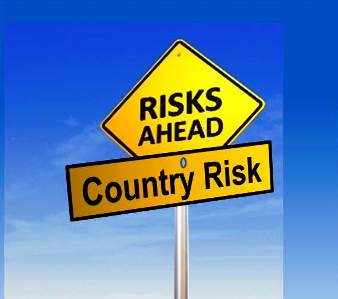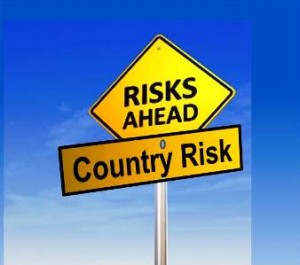 Denmark – from the top to the bottom for the krone;
Denmark – from the top to the bottom for the krone;- Hong Kong – battling to defend the USD peg;
- Morocco – a rebased basket link for the dirham;
- Singapore –better-than-expected numbers;
- Tanzania – the international donor group resumes aid;
- Turkey – vulnerabilities come to the surface.
AUSTRALIA: The Reserve Bank is letting another month go by without changing interest rates, but it will likely cut them in May if the local dollar remains too strong for its comfort. Increasingly centralized clearing for derivatives will help plans to make Sydney an Asian financial hub.
COLOMBIA: The peace talks with the FARC have reached a critical stage. The economy is not emerging unscathed, of course, from the collapse of international oil prices, but Colombia has put cushions in place that will help it overcome the repercussions without going into a steep decline.
IRAN: Contrary to official assertions the confluence of sanctions, the oil price collapse and regional wars is causing painful problems, although the regime has restored a measure of stability. The sanctions effect is crumbling, however, although the nuclear negotiations with the P5+1 group have not led to any meaningful agreements.
JORDAN: The Hashemite Kingdom faces a clear threat from ISIS, but an even greater one comes from homegrown jihadis and the authorities take no chances in confronting those. The economy has been seriously hurt by the difficult regional environment, but it is coping. Relations with Israel are currently on an improving trend.
RUSSIA: A year after the annexation of Crimea, the mood of many on the peninsula is no longer nearly as euphoric. In Russia, too, economic conditions are worsening. While there are some signs of stabilization, a resumption of capital flight remains a major risk.
SERBIA: Belgrade is not finding it easy to maneuver between Russia and the West as Moscow tries to assert growing influence while Serbia attempts to keep its options open. The economy has yet to recover fully from the 2008 global crisis, but the authorities now have a window of opportunity.
TURKMENISTAN: The economy is still growing strongly, to the extent that one can accept official numbers. Russia’s cut-back of gas purchases is a challenge, but one that Turkmenistan can manage. The mobilization of military reserves appears to be mostly a matter of diverting the public’s attention from domestic problems.
UZBEKISTAN: President Karimov, practically unopposed, won a resounding election victory last month under a “system” that could keep him in power until he takes his last breath. The economy is hurting from the debacle in Russia, but one would not know it from the official statistics that are being published. Only the exchange market has been giving an indication of trouble brewing
This page is provided by S.J. Rundt & Associates, Inc., specialists in country risk assessment, consultants to multinational companies & banks, and publishers of Rundt’s World Business Intelligence and The Financial Executive’s Country Risk Alert. To order a subscription or individual issues of these reports, in print or by e-mail, contact S.J. Rundt & Associates, P.O. Box 1572, Montclair, NJ 07042; Telephone: (973) 731-7502, Fax: (973) 731- 7503; E-mail: info@rundtsintelligence.com; Web site: www.rundtsintelligence.com.























